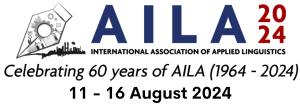Professor Dr. John E. Joseph
University of Edinburgh (UK)
John E. Joseph: The Added Value of Historical Perspective in Applied Linguistics
Applied linguistics and the history of linguistics are both marginalised as subfields within departments for which only current theory qualifies as ‘scientific’. To put it in terms which resonate historically, theoretical linguistics is treated as the equivalent of langue, the core system, with applied linguistics as the parole, the (mere) uses to which langue is put. Of course applied linguists over the last 60 years have refused to accept this characterisation (as indeed have partisans of parole). We have not relied solely or even primarily on the work of our theoretician colleagues to guide the development of what our concerns are and how we address them, scientifically. Nor are we above raising an eyebrow at what passes for science in the work of analysts whose gaze is fixed on idealisations, rather than on speakers and the role languages play in their lives.
It is not obvious at what point we can identify a ‘theoretical’ linguistics detached from an older tradition of grammatical/philological/rhetorical enquiry with applied aims, but whatever date and theory we opt for, an applied foundation always underlies it. I shall illustrate this point with examples drawn from the ancient, early modern and modern periods, up to the point in the late 1940s when applied linguistics emerged as a named discipline.
One might expect that bringing together two marginalised subfields would double the marginality. But I hope to show how the opposite can be achieved: how the history of applied linguistics – viewed over its longue durée – positions theoretical enquiry as its offshoot, and no more than its equal, and arguably with less impressive results in terms of enduring impact.
Keywords: history of applied linguistics, history of language teaching, history of linguistics, applied and theoretical linguistics, ancient grammar, structural linguistics

